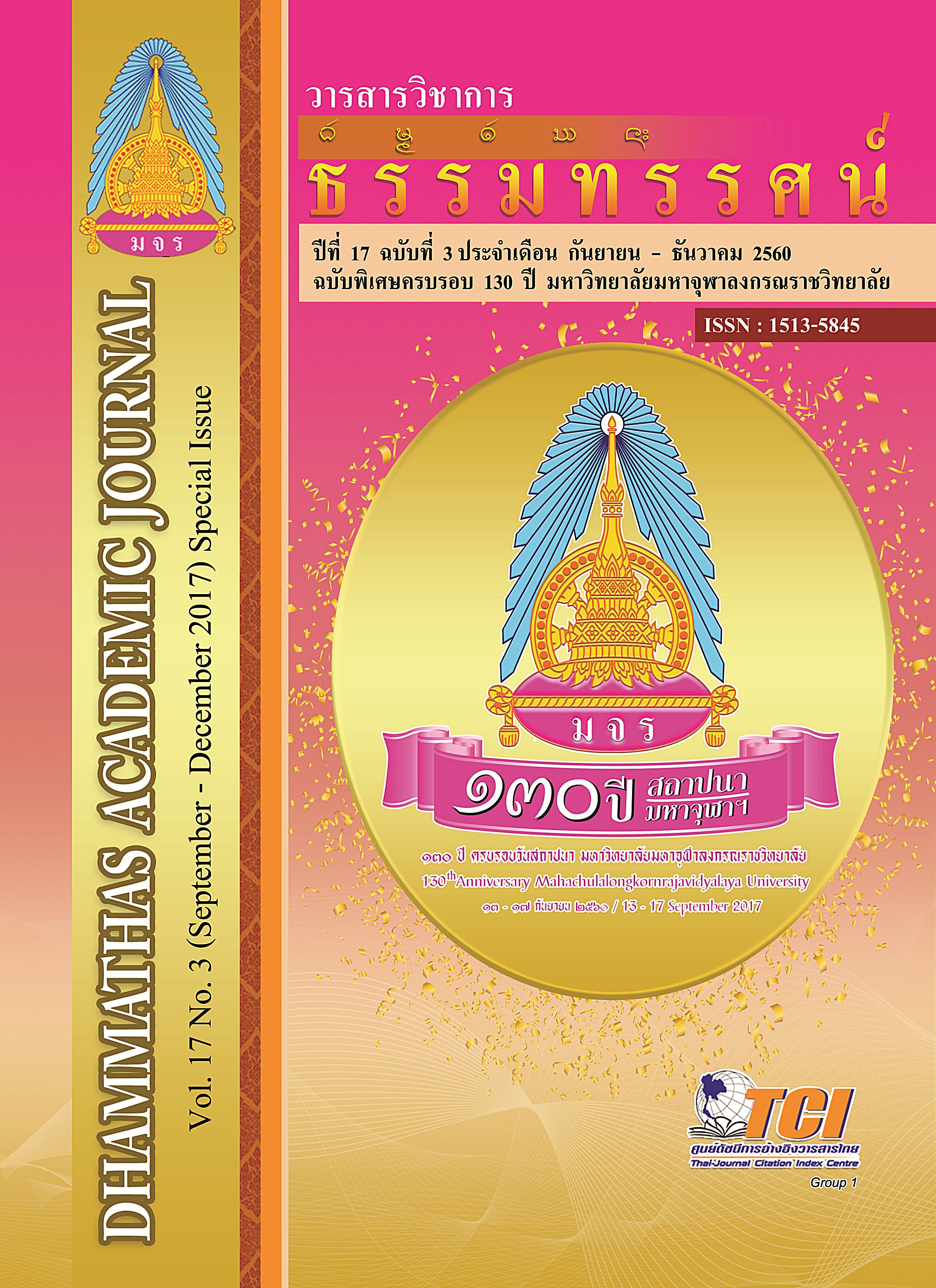A Study of the Relations between Buddhism and Bun Kao Tradition of Buddhist in KhonKaen Province
Main Article Content
Abstract
The purposes of this study were 1) to study the background of rice and its belief of Buddhist, 2) to study the pattern of Bun Kao Tradition of Buddhist in KhonKaen province, and 3) to study the relations between Buddhism and Bun Kao tradition of Buddhist in KhonKaen province.
Bun Kao, which was mutual to Thai people since the ancient, was involved to rice and related things of rice; so people sought several ways to get rice qualitatively and quantitatively which made the tradition, ceremony, ad belief in rice really happened.
The pattern of Bun Kao Tradition of Buddhist in KhonKaen province was found that each tradition would have its own description differently depending on time of the process of a tradition. Bun Khun Lann was aimed to perform ceremony for encouragement of rice for being auspicious to villagers. Bun Kao Ji was aimed to mold sticky rice and get it roasted and offer then to the monks; it was believed that who had made it would be fortuned but if not, it would cause some harm for the village. Bun Kao Pra Dub Din was believed that it was the day that prince of devils would open the underworld door for ghosts to visit their families; so people would cook and make some rice packs to sacrifice to their deceased family members. Bun Kao Saak was aimed for monks to receive some necessaries as well as trays of food that folks offered to and for making merit for their ancestors.
The relations between Buddhism and Bun Kao tradition of Buddhist in KhonKaen Province revealed that there were the principles which were involved to the relations: Kataññūkatavedī (gratitude), Tenfold Puññakiriyā-vatthu (bases of meritorious action), and Samparāyikattha (spiritual welfare). The relations between Buddhism and Bun Kun Lann, Bun Kao Pra Dub Din, and Bun Kao Saak were involved by Kataññūkatavedī. And for Bun Kao Ji, there were Dāna (giving), Sīla (rules of morality), and Bhāvanā (mental development).

